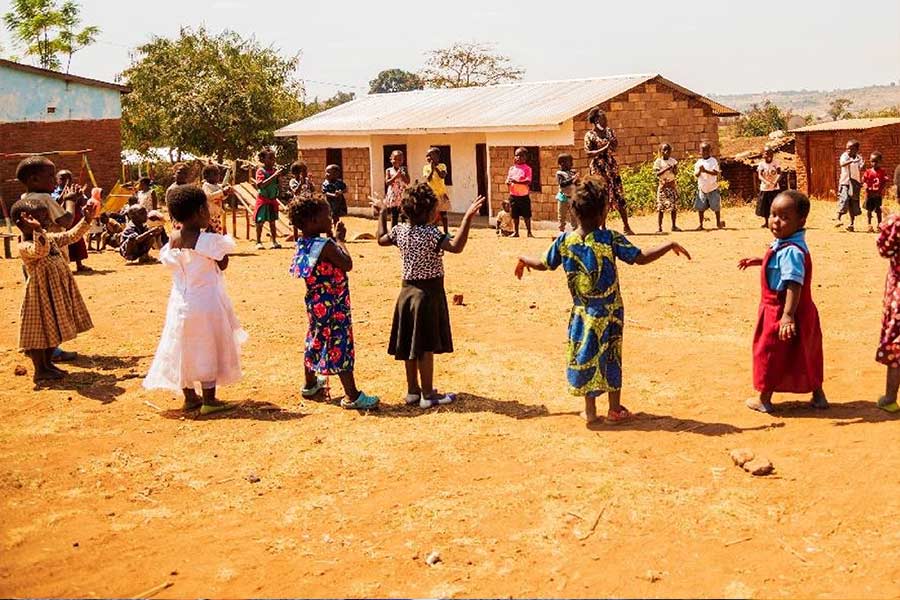ZODIAK ONLINE
Sect. 5, P/Bag 312
Lilongwe, Malawi

In a bold campaign that could redefine the future of child rights in Malawi, the Malawi Human Rights Commission (MHRC) has proposed sweeping legislative reforms aimed at explicitly outlawing corporal punishment of children both at home and in educational institutions.
These recommendations, presented during a meeting with the Ministry of Gender, Children, Disability and Social Welfare in Lilongwe on Tuesday, could see violators face penalties of up to K10 million — a decisive move toward dismantling what the Commission describes as a “cycle of abuse.”
What’s at Stake
The proposed legal overhaul would revise several cornerstone laws, including the Constitution of the Republic of Malawi, the Child Care, Protection and Justice Act (CCPJA), and the Education Act of 2013.
The MHRC audit, presented to the ministry, further calls for addressing policy gaps and pushing for harmonization across government departments responsible for child protection.
According to MHRC Executive Secretary Habiba Osman, the current legislative framework is insufficiently clear, allowing violent disciplinary practices to be normalized.
“Corporal punishment is a vice... It is happening in homes, communities, and schools where our children live and learn. If we do not act on this audit report, we are failing our children,” said Jean Sendeza, Minister of Gender, Children, Disability and Social Welfare, after receiving the report.
Sendeza emphasized the urgency of cross-sector collaboration, noting gaps not only in legislation but also in public awareness.
She called on the Ministry of Justice and the Ministry of Education to join forces with the gender ministry, asserting that Malawi cannot afford to sideline children’s rights.
“Our children must be protected wherever they are — whether at school, at home, or in the community.”
Alarming Statistics
Osman highlighted concerning data gathered in collaboration with UNICEF Malawi, noting that over 11,000 children had formally reported experiences of corporal punishment.
“Our monitoring revealed violent disciplinary methods remain unchecked. This isn’t just about isolated incidents—it’s systemic.”
She cited past research from Afrobarometer and UN treaty bodies, underscoring international concern over Malawi’s lagging legal protections.
MHRC has called for immediate amendments to existing laws and the development of school-level codes of conduct that would prohibit corporal punishment outright.
“We must create learning environments that are free from violence—not just in theory, but in practice.”
A 2022 UNICEF poll revealed that 90% of learners had experienced corporal punishment, including hitting them with objects, slapping, pinching, and public humiliation. A 2017 essay competition showed 93% of students identified corporal punishment as serious abuse in schools.
The same poll found that 84% of learners had experienced corporal punishment at home. The 2019–20 Multiple Indicator Cluster Survey reported that 62% of children aged 1–14 had been subjected to psychological or physical punishment in the previous month.
A 2016 national inquiry documented cases of children suffering hearing loss, convulsions, memory loss, and hospitalization due to corporal punishment.
Long Overdue
Benedicto Kondowe, Deputy Chairperson of the National Children’s Commission, praised MHRC’s campaign and emphasized that the issue has long been neglected by public institutions.
“Explicit prohibition in law is essential—but we must go further,” he said, advocating for a broader institutional framework with clear coordination across ministries, referral systems, investigative protocols, enforcement mechanisms, and prosecution standards.
“Different ministries are working in silos. We need a unified response to end corporal punishment,” added Kondowe.
Testimonies that Demand Action
Some of the testimonies collected during MHRC’s public inquiries reveal the brutal reality behind the statistics.
One mother from Mchinji reported that her 10-year-old daughter was in a coma for two days. Doctors suspected a severe beating, though the school never disclosed the incident.
Precious Mapaya, a Standard Five pupil from Mulanje, shared that during a Social Studies class, he was seated and quietly copying notes when the teacher, frustrated by noise in the classroom, began beating students at random.
“Suddenly I felt a strike on my eye, then another. Blood started flowing from my face.”
He was treated at Mulanje District Hospital, receiving three stitches below his left eye and medication for an open wound. The incident enraged his family, who confronted the teacher and handed him over to the police.
Corporal punishment is rampant not only in public schools but also in private institutions. One private school under scrutiny is Karibu Academy.
A student, identified as KA004, described a “punishment room” at Karibu Academy where students were treated like prisoners.
“Teachers would beat you. Sometimes you were told to dig a one-meter pit or be caned. Reporting the abuse only led to harsher punishment.”
The student’s testimony formed part of a public hearing by MHRC in Blantyre, which exposed a pattern of harsh and degrading treatment at the school, according to the state-funded independent national institution tasked with protecting and promoting human rights in Malawi.
Homes Neither Safe
A study on child discipline in rural homes revealed culturally rooted beliefs, including:
“If the child is disobedient, you must beat them. When they feel pain, they stop doing bad things. That’s how they grow up with good morals.”
According to the MHRC report, this quote underscores the cultural dissonance between traditional beliefs and child rights frameworks, highlighting the need for community-based education and reform.
A Nation at a Crossroads
Malawi’s continued use of corporal punishment contradicts its obligations under the UN Convention on the Rights of the Child and the African Charter on the Rights and Welfare of the Child.
The MHRC’s report is not just a document — it’s a clarion call for change. If adopted, these reforms could usher in a new era of child protection, where discipline is rooted in dignity, safety, and restorative discipline — not pain.
The question now is whether lawmakers will rise to the occasion. Will Malawi finally outlaw corporal punishment and embrace a future where children are nurtured, not harmed? Or will culture and religion stand in the way?